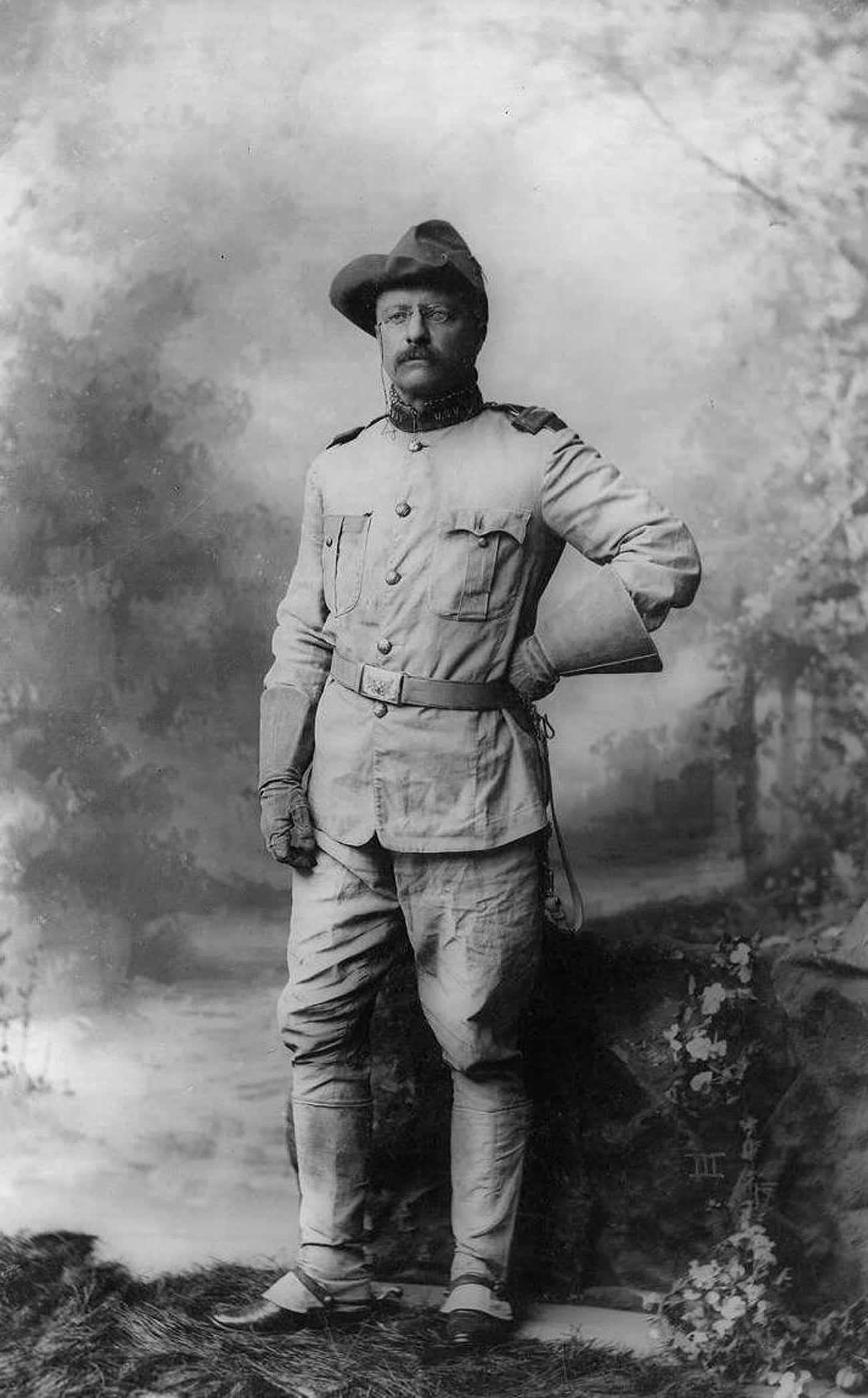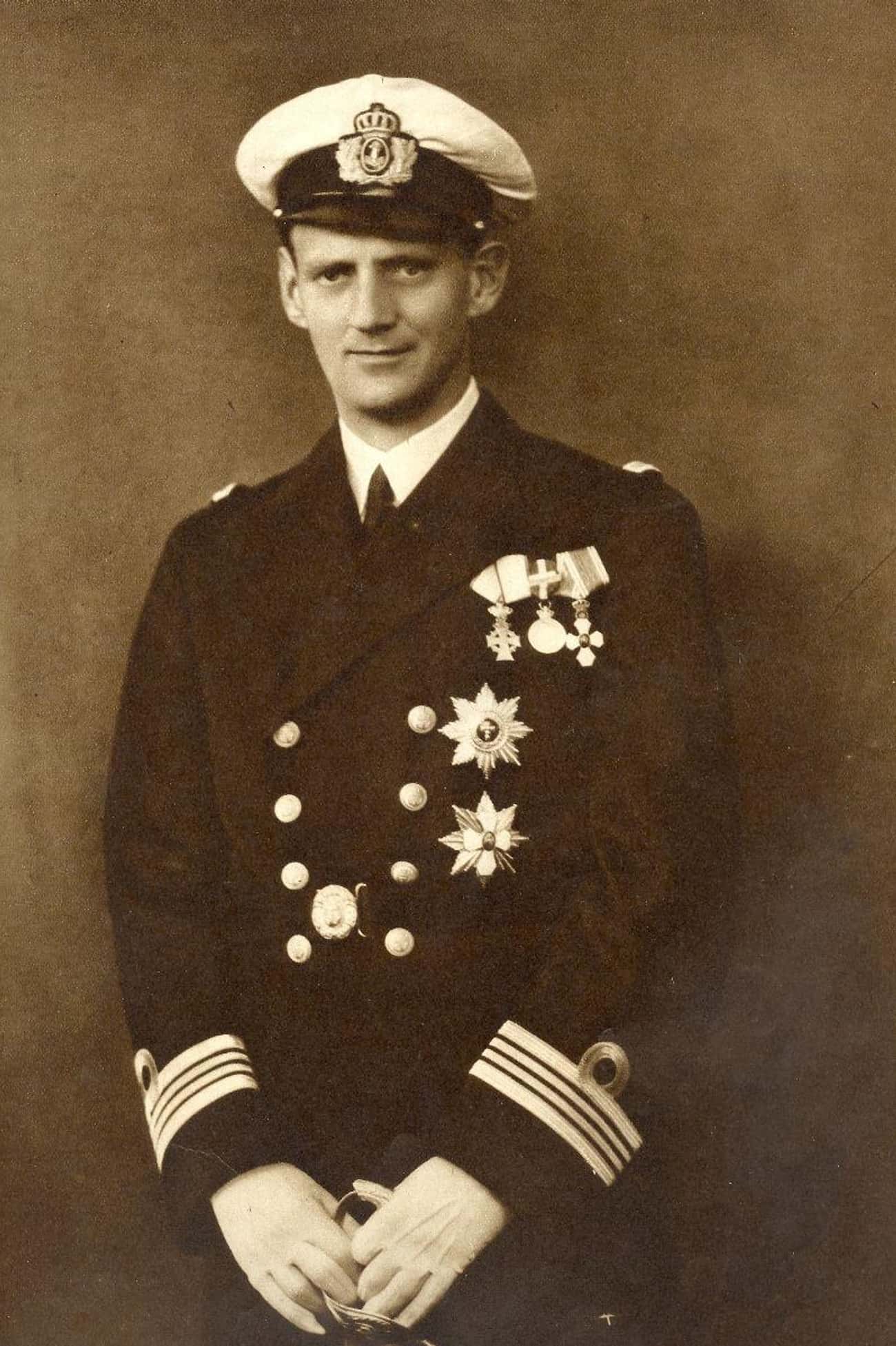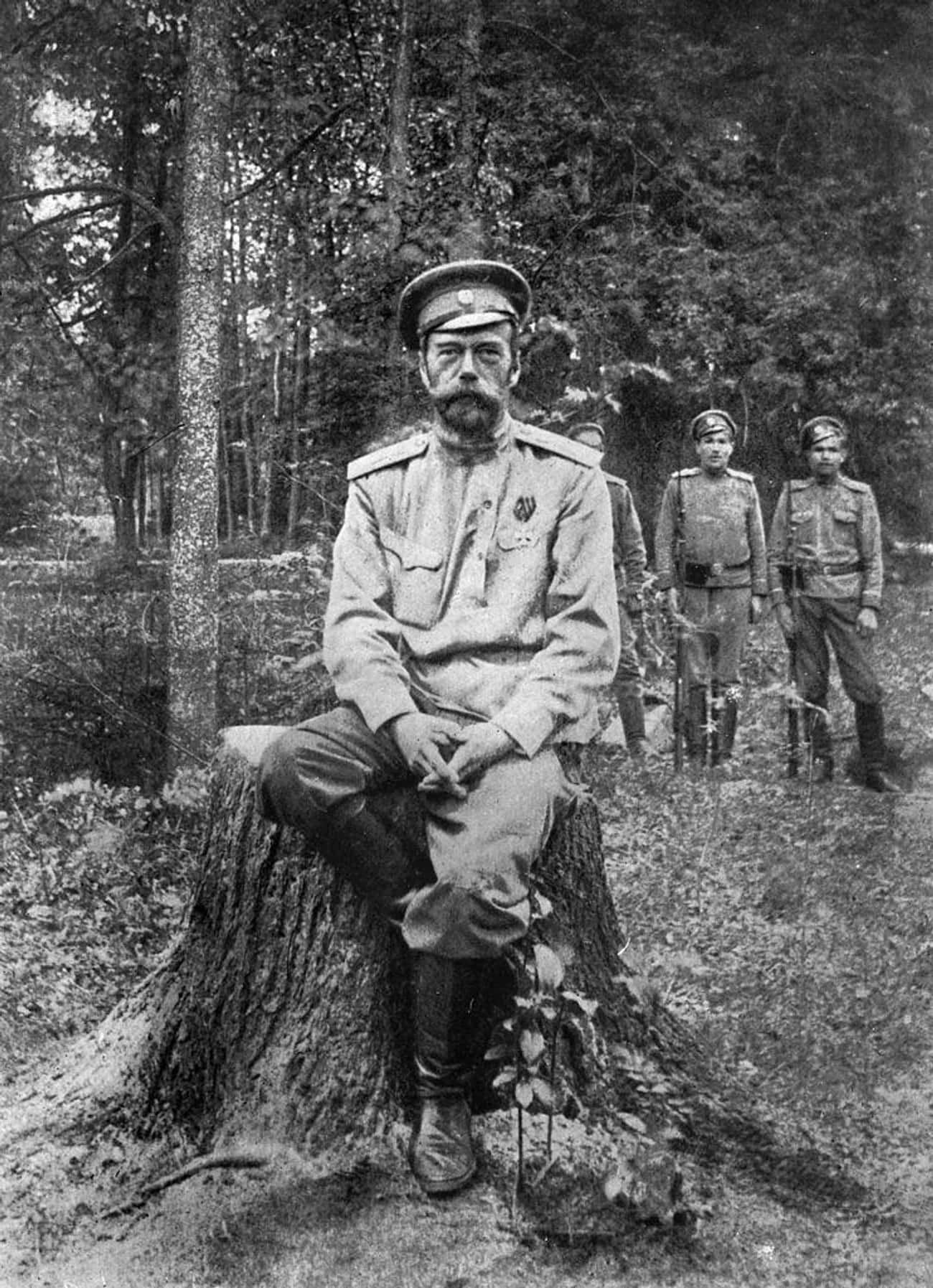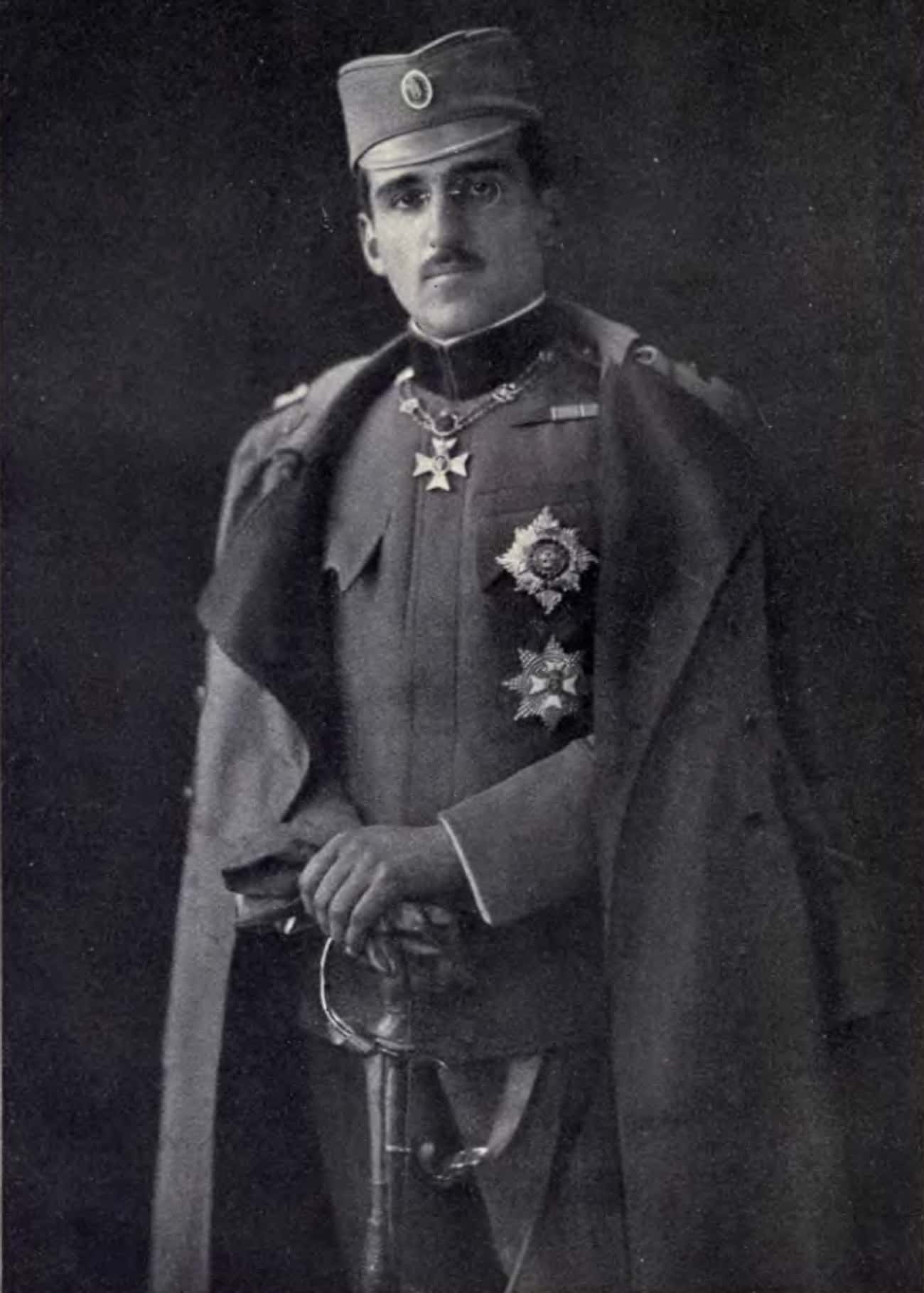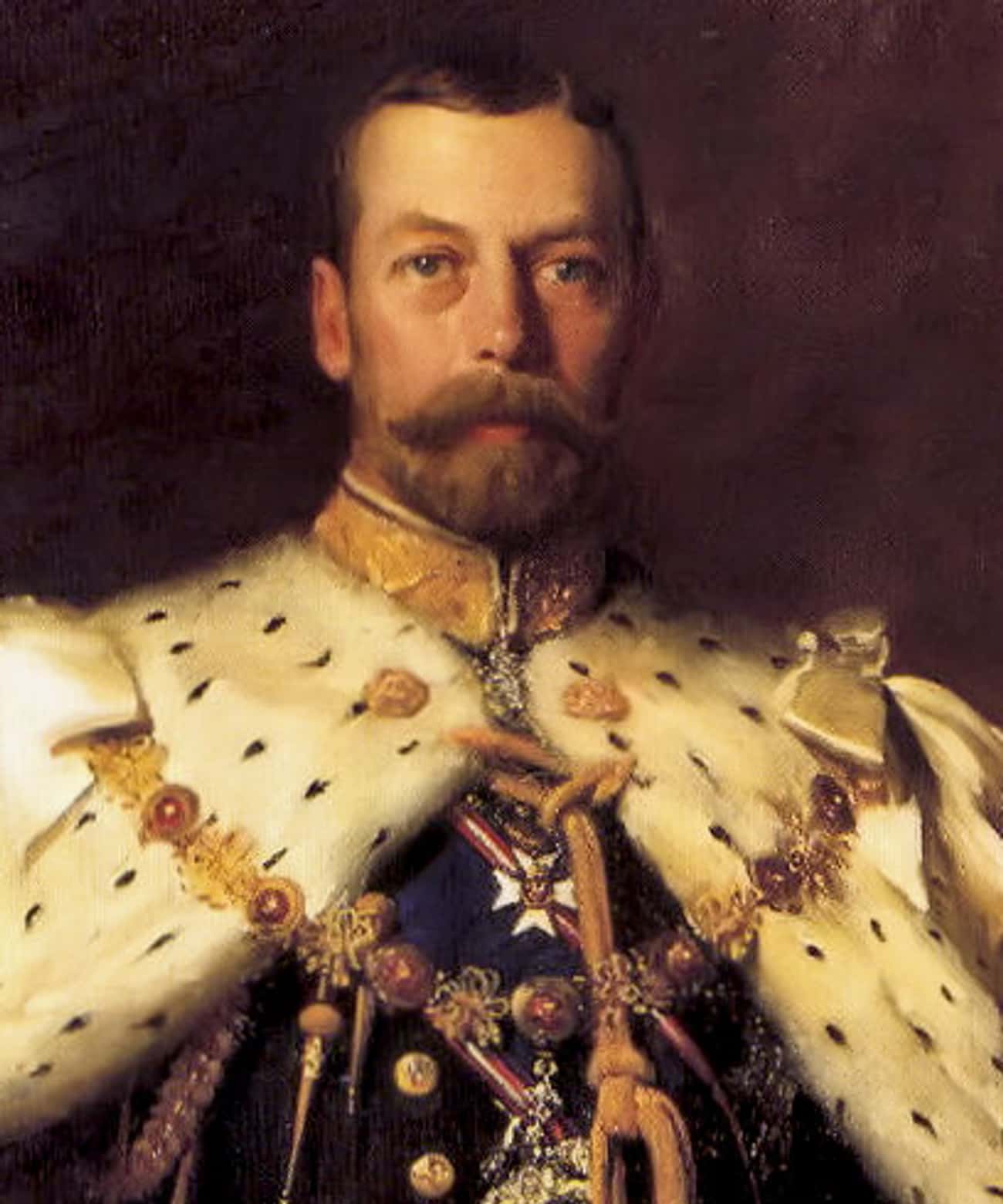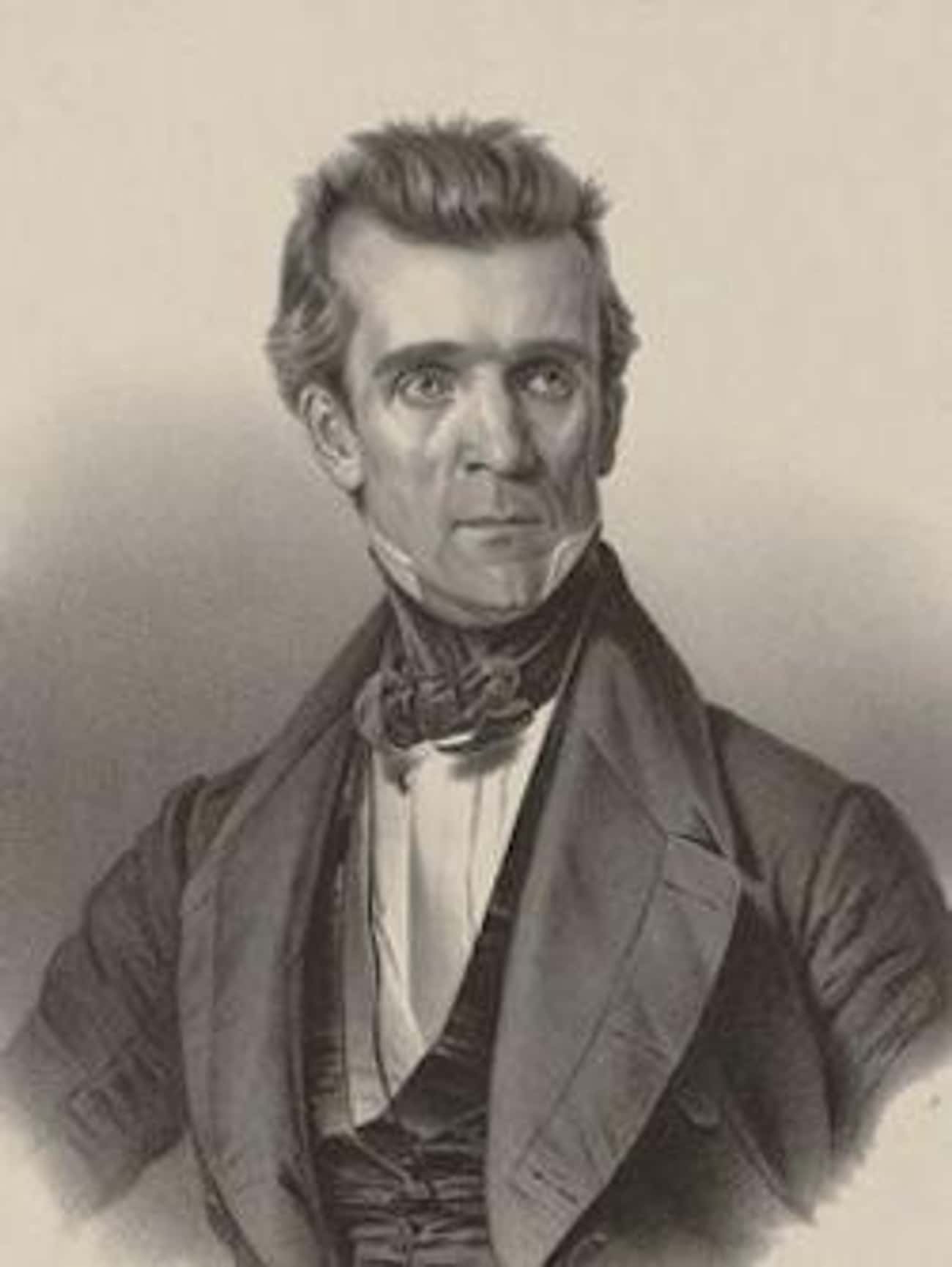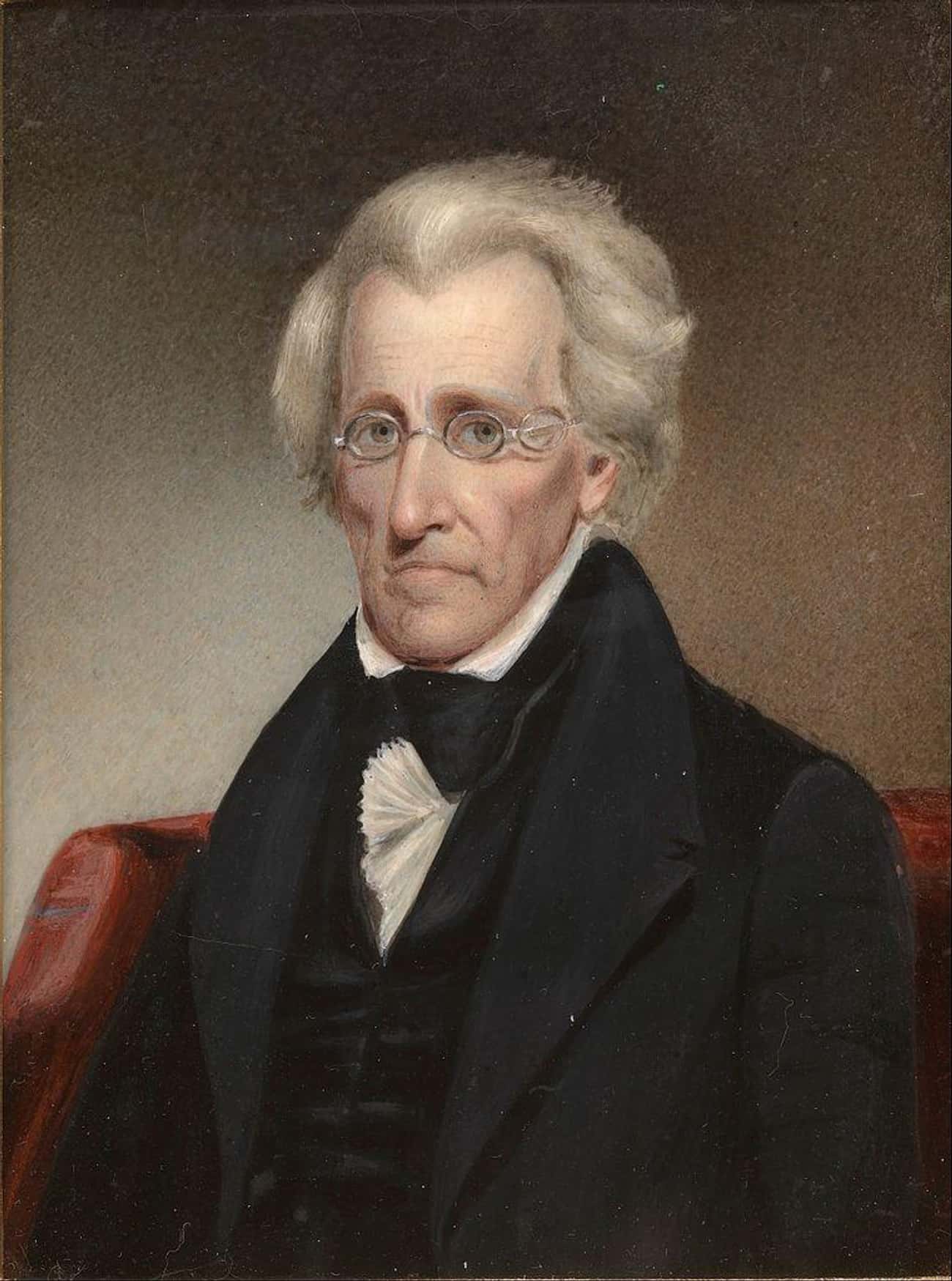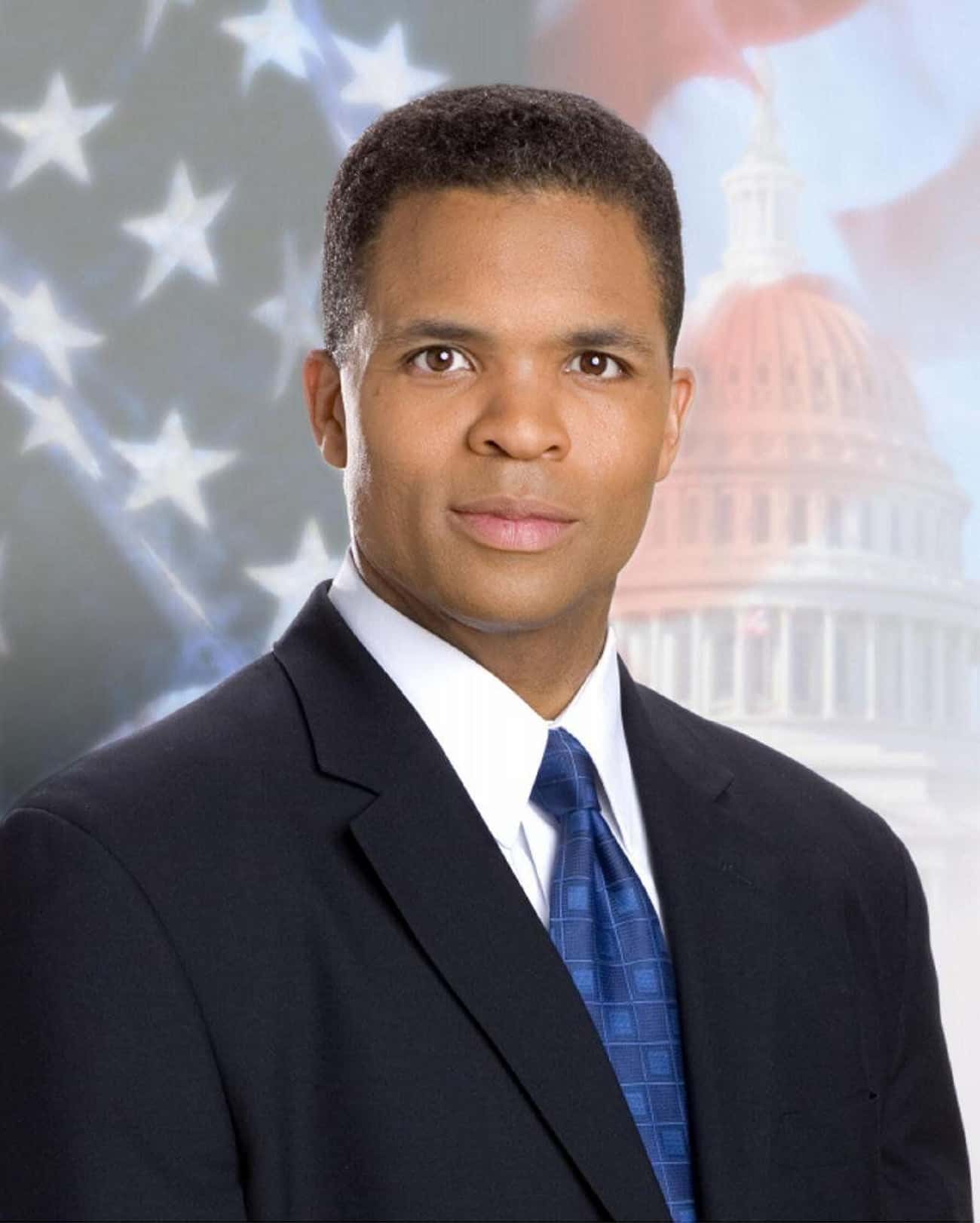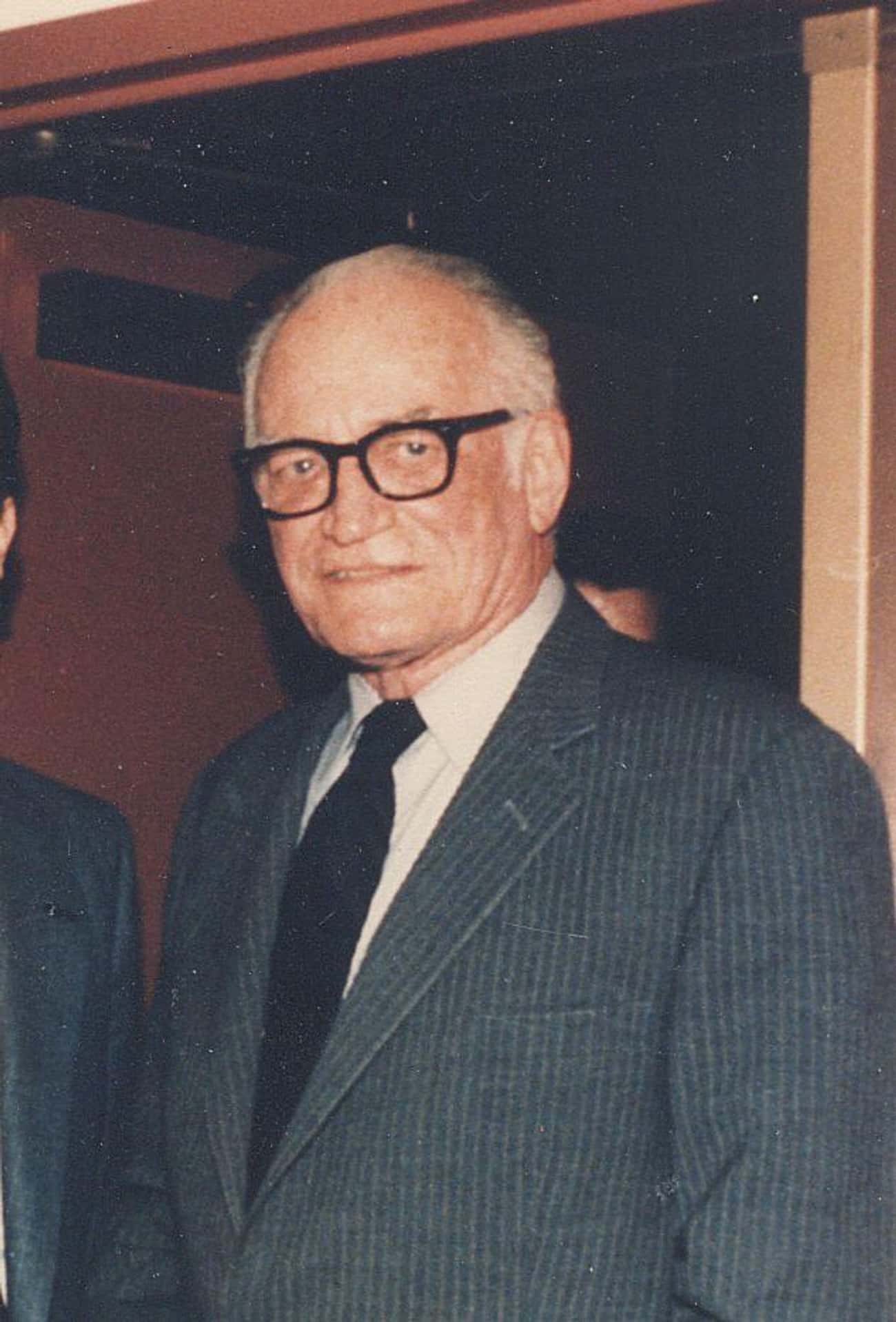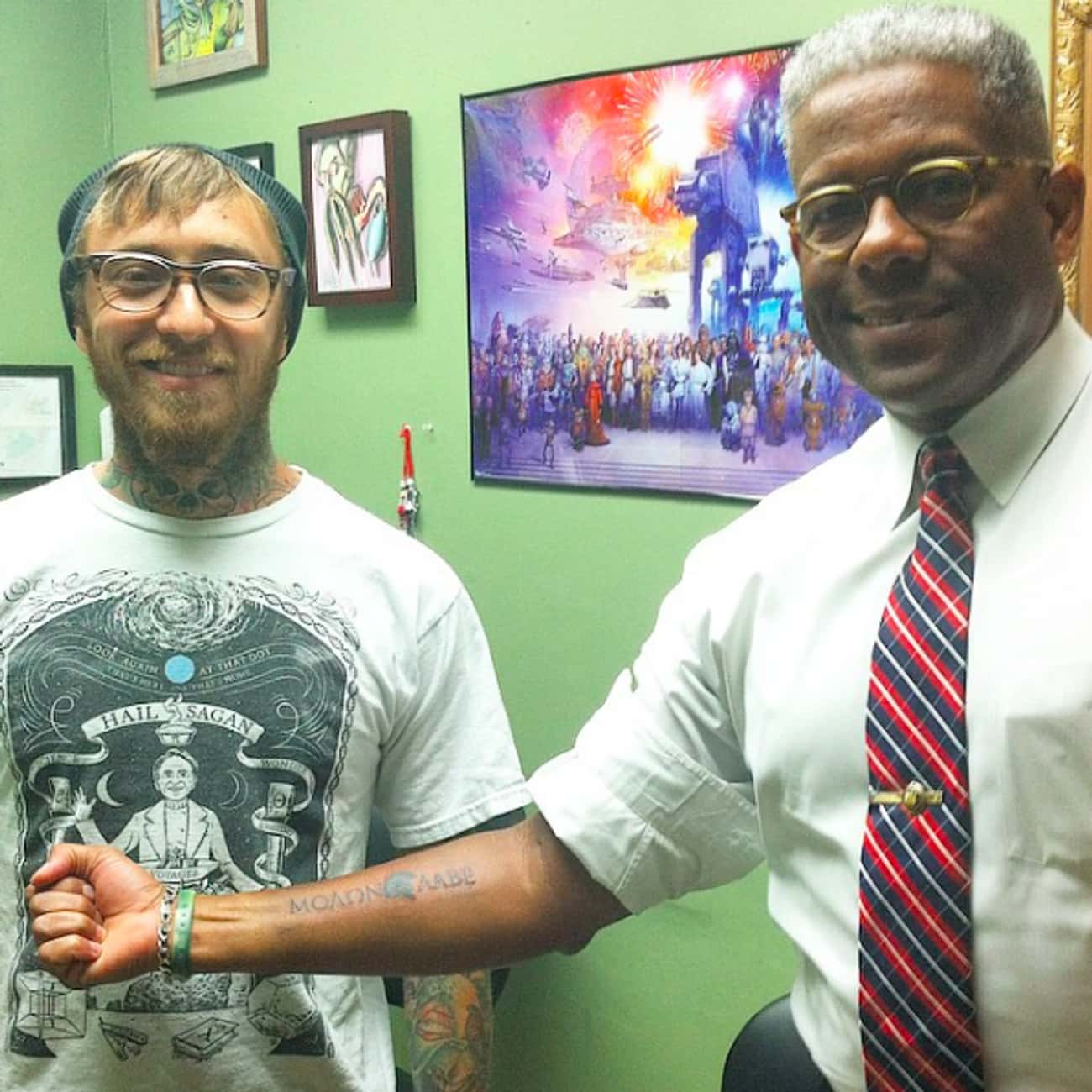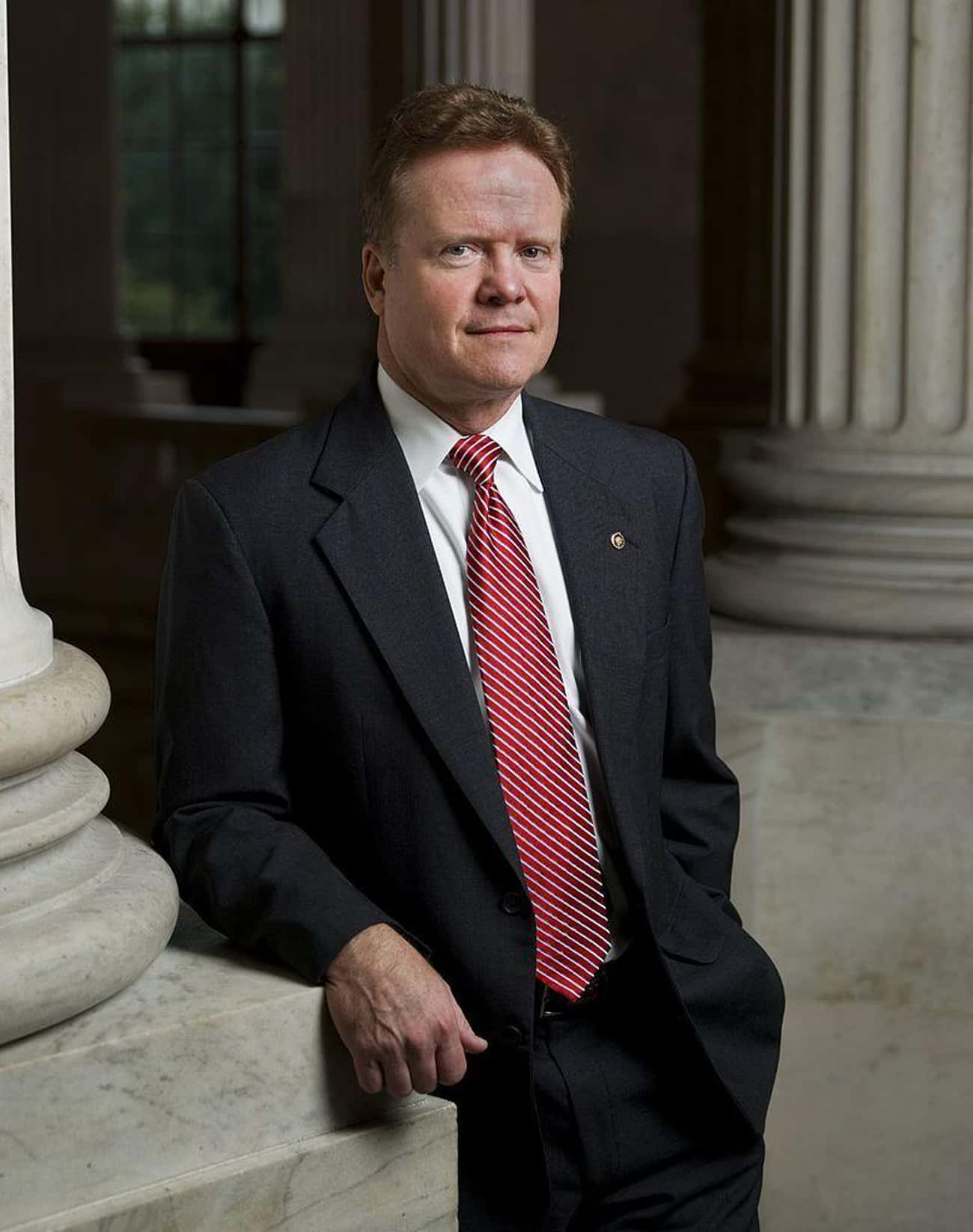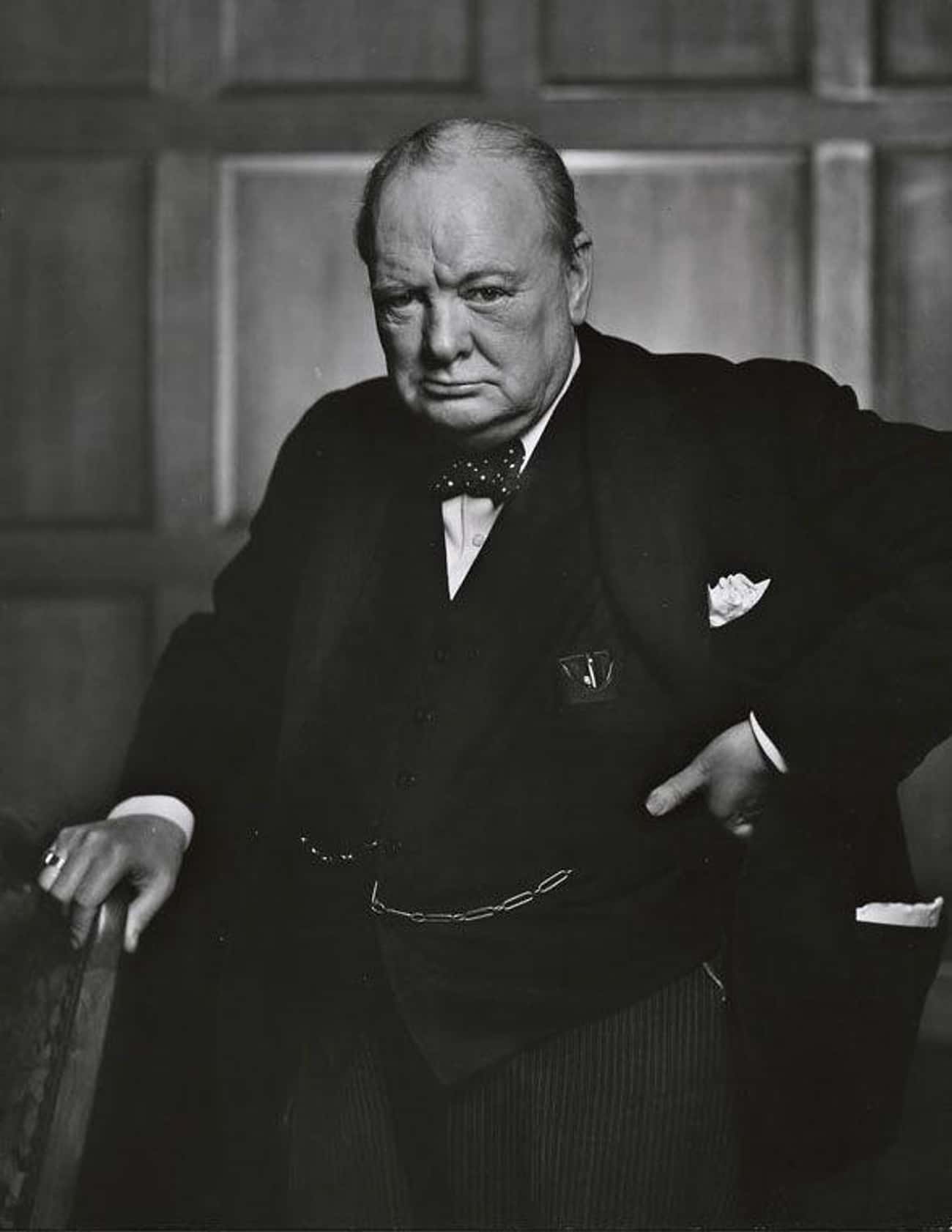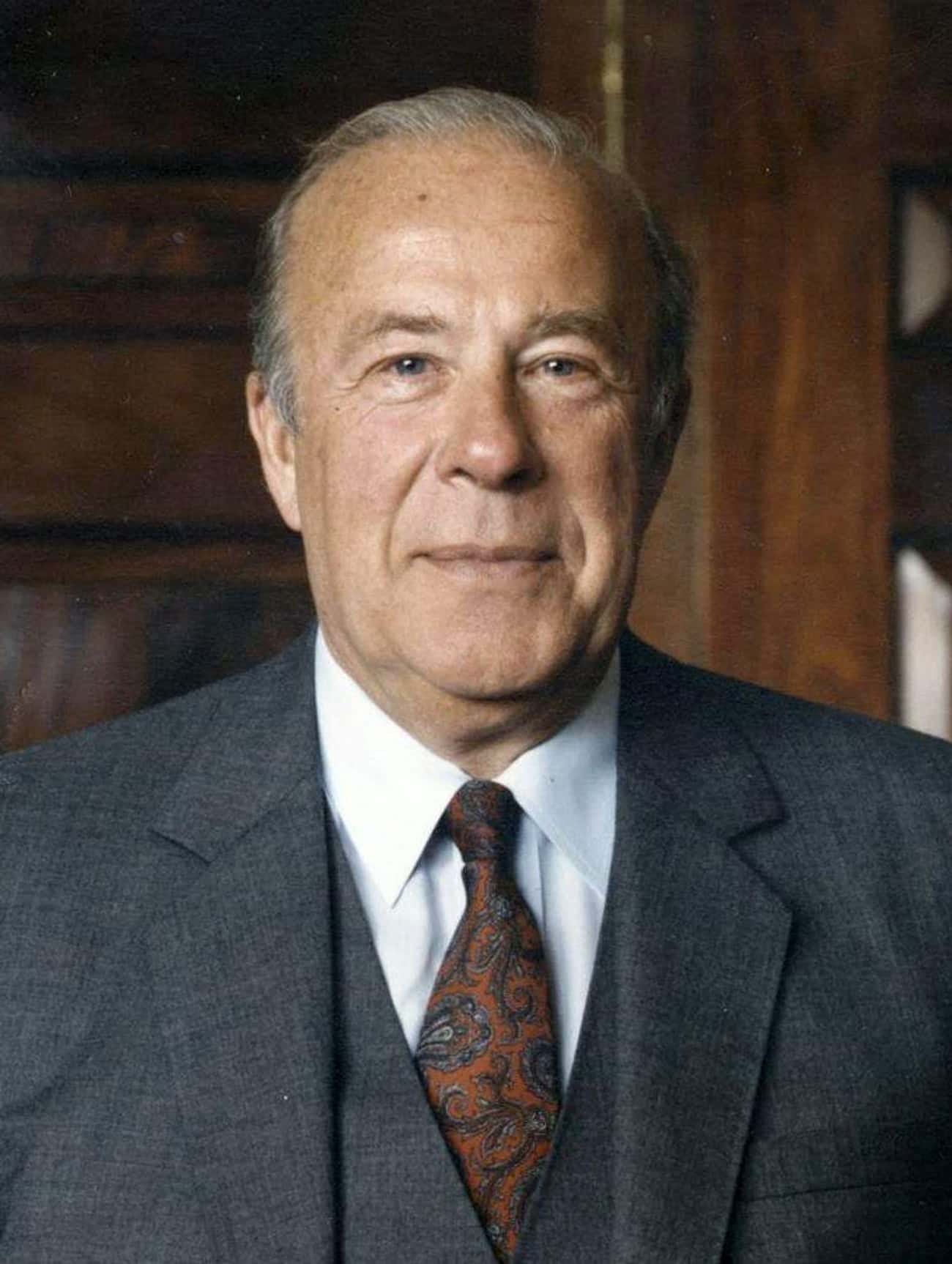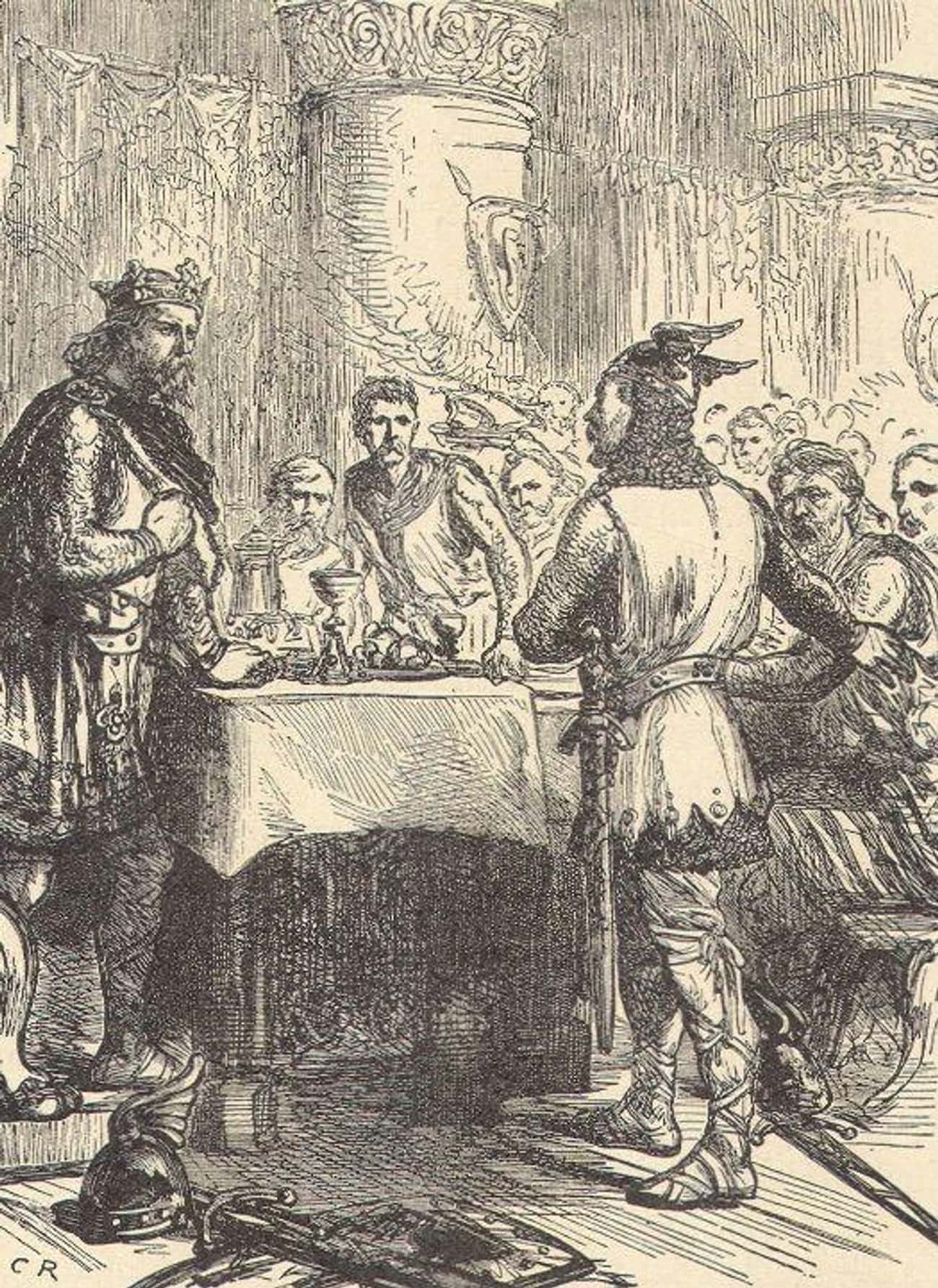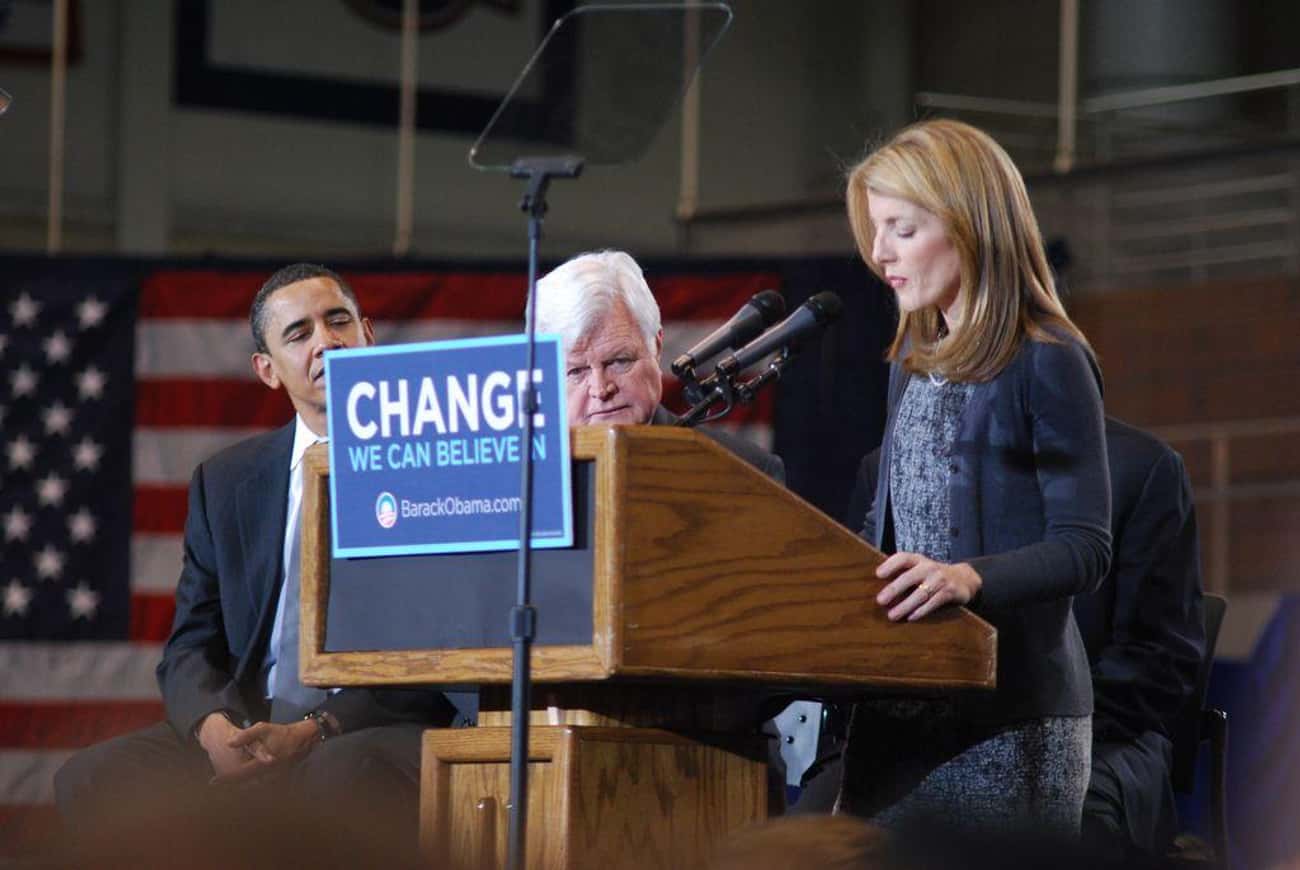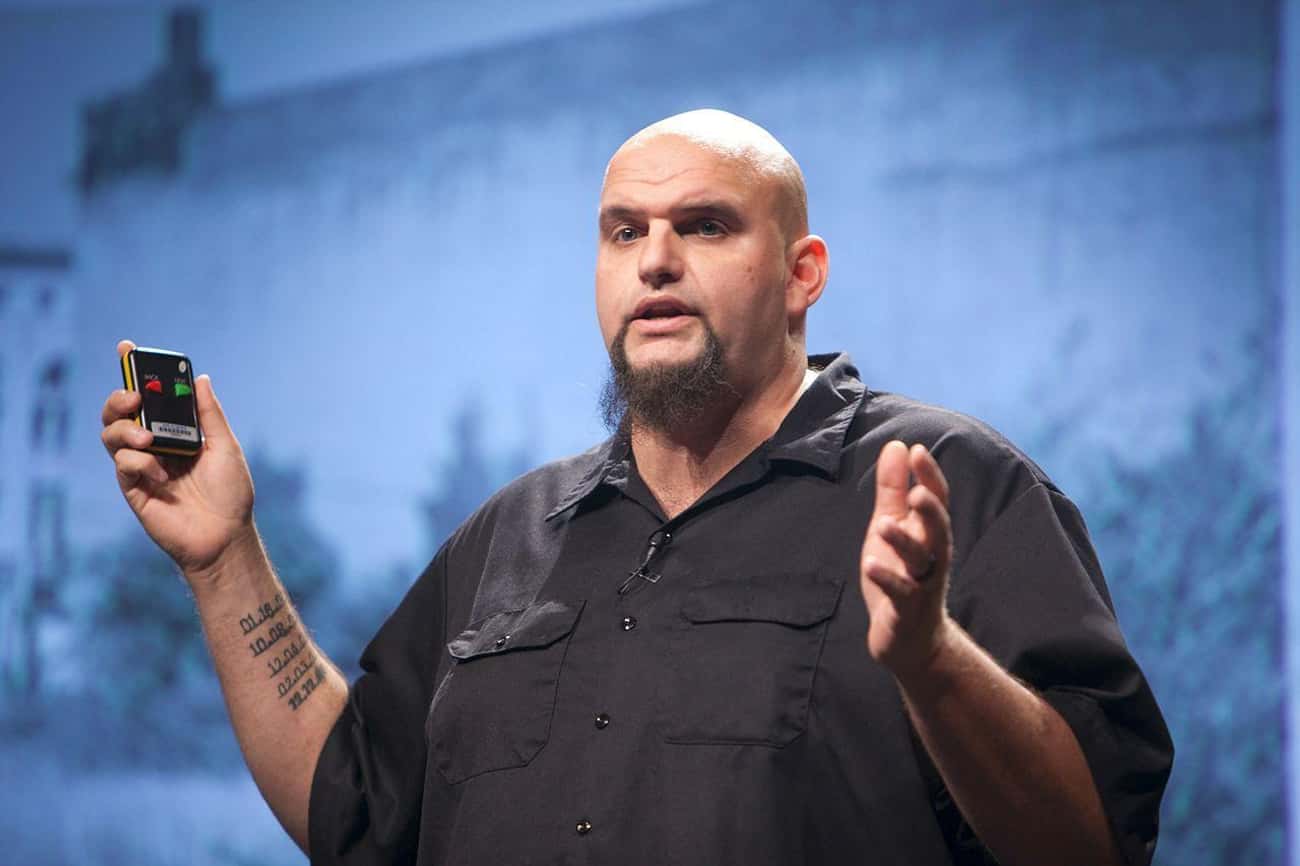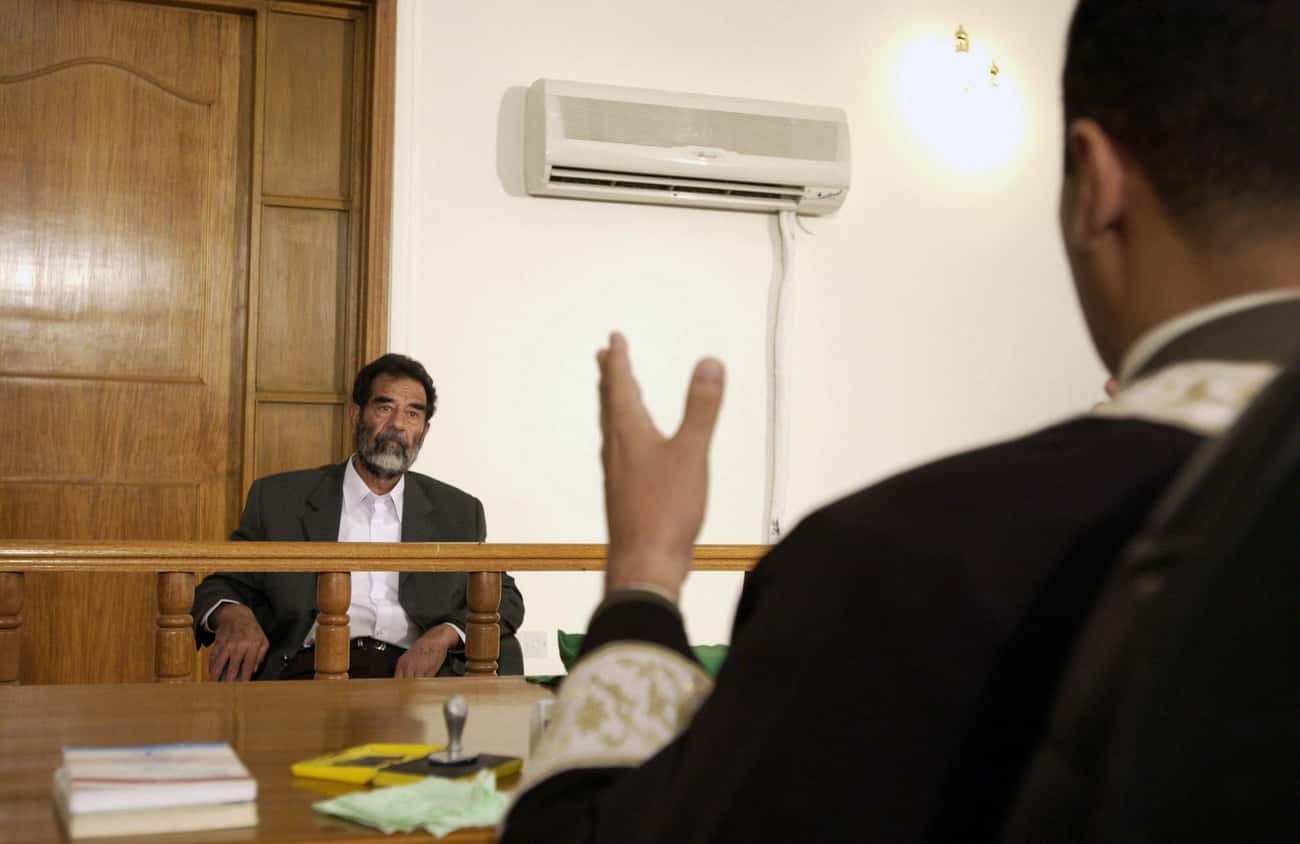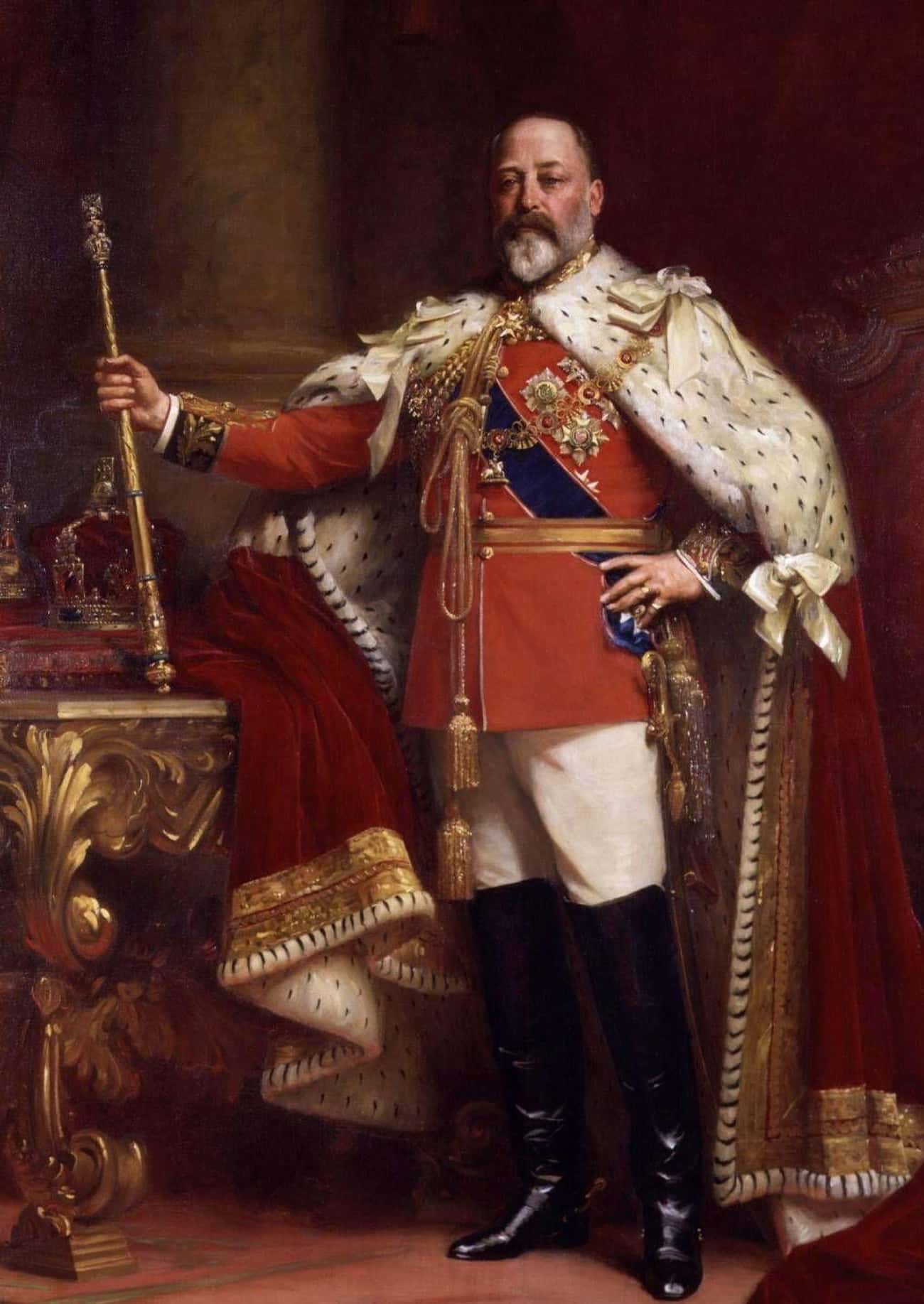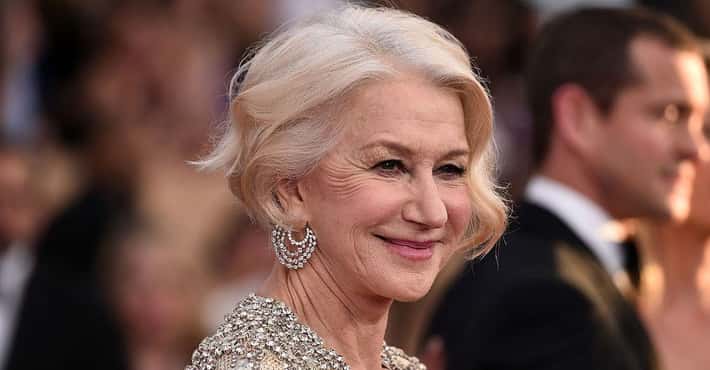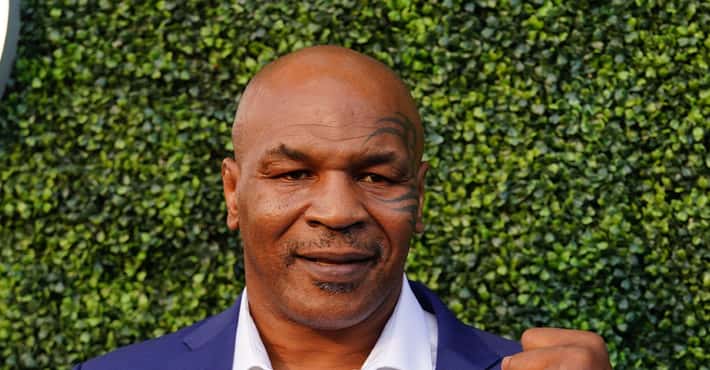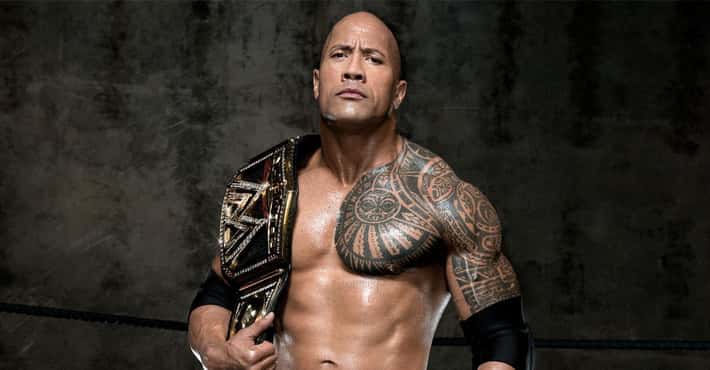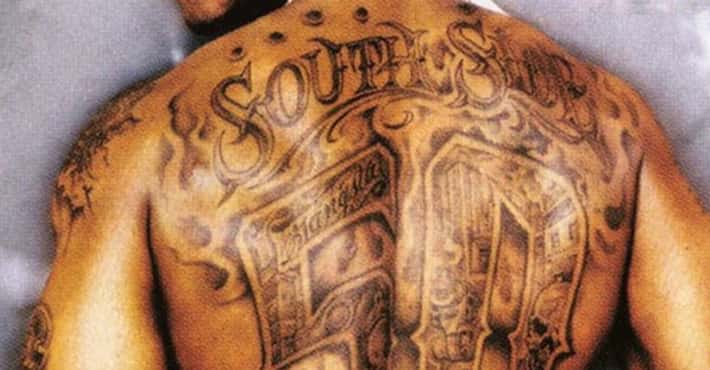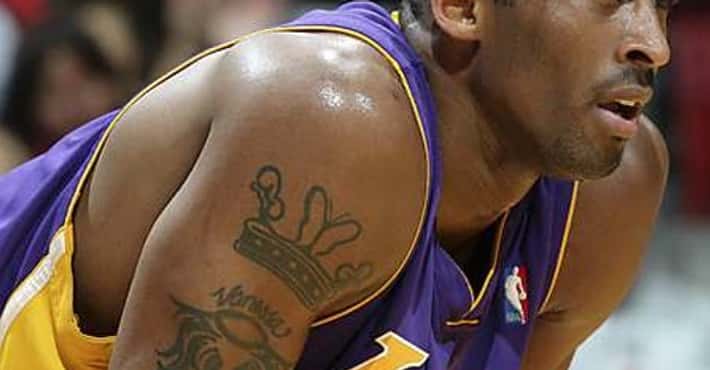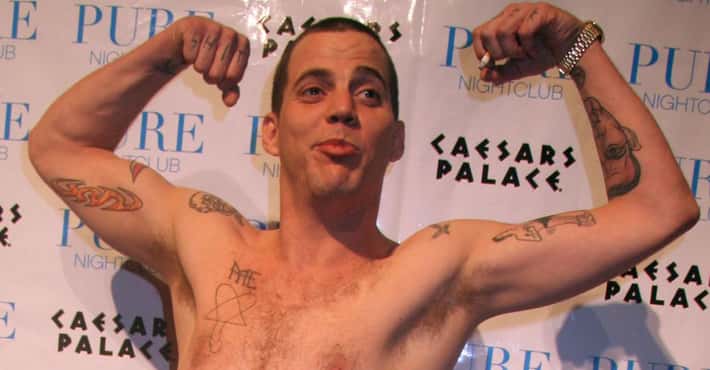19 World Leaders Who Have Tattoos
- Photo: George G. Rockwood / Wikimedia Commons / Public Domain
Is said to have had his family crest on his chest.
Theodore Roosevelt, the 26th President of the United States, was a man known for his energetic personality, range of interests, and achievements both before and during his presidency. Born on October 27, 1858, in New York City, he was plagued with health problems as a child. However, he overcame these challenges through sheer determination, fostering a lifelong love for physical fitness and outdoor pursuits. Roosevelt's political career began in the New York State Assembly, where he served from 1882 to 1884. He then went onto serve as the New York City Police Commissioner, Assistant Secretary of the Navy, Governor of New York, and Vice President under William McKinley. Following the assassination of McKinley in 1901, Roosevelt assumed the presidency, becoming the youngest person ever to hold the office at age 42. His presidency, which lasted until 1909, was marked by progressive policies, the construction of the Panama Canal, and winning the Nobel Peace Prize for mediating the Russo-Japanese War. Beyond politics, Roosevelt was also a prolific author, writing about subjects ranging from history and geography to nature and hunting. He was a dedicated conservationist, establishing numerous national parks, forests, and monuments to preserve America's natural resources and wildlife. After leaving the presidency, he embarked on numerous adventures, including a safari in Africa and an expedition in South America. A man truly larger than life, Roosevelt's legacy continues to resonate in American politics, literature, and environmental conservation. Has a Haida raven on his left arm.
Justin Pierre James Trudeau (; French: [ʒystɛ̃ tʁydo]; born December 25, 1971) is a Canadian politician who has served as the 23rd prime minister of Canada since 2015 and leader of the Liberal Party since 2013. Trudeau is the second-youngest Canadian Prime Minister after Joe Clark; he is also the first to be related to a previous holder of the post, as the eldest son of Pierre Trudeau.Born in Ottawa, Trudeau attended Collège Jean-de-Brébeuf, graduated from McGill University in 1994, and then the University of British Columbia in 1998. He has a bachelor of arts degree in literature and a bachelor of education degree. After graduating, he worked as a teacher in Vancouver, British Columbia. In 2002 he started studying engineering at Montreal's École Polytechnique, but dropped out in 2003. In 2004, he started a master’s program in environmental geography at McGill University, but left without graduating in 2005. He has also held jobs including camp counselor, nightclub bouncer, and snowboard instructor.In the 2008 federal election, he was elected to represent the riding of Papineau in the House of Commons. In 2009, he was appointed the Liberal Party's critic for youth and multiculturalism, and the following year, became critic for citizenship and immigration. In 2011, he was appointed as critic for secondary education and sport. Trudeau won the leadership of the Liberal Party in April 2013 and led his party to victory in the 2015 federal election, moving the third-placed Liberals from 36 seats to 184 seats, the largest-ever numerical increase by a party in a federal election.More Justin Trudeau- #426 of 483 onThings That Are Not As Cool As People Think They Are
- #142 of 143 onIf You Fought To The Death, Who Would You Want By Your Side?
- #27 of 29 on29 Celebrities Who Have Shown Up In Comic Books
Frederick IX Of Denmark
Photo: Official photographer to the Danish Court Johannes Jaeger / Wikimedia Commons / Public DomainHad several tattoos, acquired during his service in the Danish Navy.
Frederick IX (Christian Frederik Franz Michael Carl Valdemar Georg; 11 March 1899 – 14 January 1972) was King of Denmark from 1947 to 1972. Born into the House of Glücksburg, Frederick was the elder son of King Christian X and Queen Alexandrine of Denmark. He became crown prince when his father succeeded as king in 1912. As a young man, he was educated at the Royal Danish Naval Academy. In 1935, he was married to Princess Ingrid of Sweden and they had three daughters, Margrethe, Benedikte and Anne-Marie. During Nazi Germany's occupation of Denmark, Frederick acted as regent on behalf of his father from 1942 until 1943. Frederick became king on his father's death in early 1947. During Frederick IX's reign, Danish society shook off the restrictions of an agrarian society, developed a welfare state and, as a consequence of the booming economy of the 1960s, women entered the labour market. Denmark modernized, bringing new demands on the monarchy and Frederick's role as a constitutional monarch. Frederick IX died in 1972, and was succeeded by his eldest daughter, Margrethe II.- Photo: Unknown / Wikimedia Commons / Public Domain
Had a dragon on his right arm.
Nicholas II or Nikolai II (Russian: Никола́й II Алекса́ндрович, tr. Nikolai II Aleksandrovich; 18 May [O.S. 6 May] 1868 – 17 July 1918), known as Saint Nicholas the Passion-Bearer in the Russian Orthodox Church, was the last Emperor of Russia, ruling from 1 November 1894 until his forced abdication in 15 March 1917. His reign saw the fall of the Russian Empire from one of the foremost great powers of the world to economic and military collapse. He gave limited support to the economic and political reforms promoted by top aides Sergei Witte and Pyotr Stolypin, but they faced too much aristocratic opposition to be fully effective. He supported modernization based on foreign loans and close ties with France. He resisted giving the new parliament (the Duma) major roles. He insisted he ruled by God's grace and was loathe to negotiate or compromise. He was ridiculed as Nicholas the Bloody by his enemies due to the Khodynka Tragedy, anti-Semitic pogroms, Bloody Sunday, the violent suppression of the 1905 Russian Revolution, the repression of political opponents, and his responsibility for defeat in the Russo-Japanese War (1904–1905). His memory was reviled by Soviet historians as a weak and incompetent leader whose decisions led to military defeats and the deaths of millions of his subjects. By contrast Anglo-Russian historian Nikolai Tolstoy, leader of the International Monarchist League, says, "There were many bad things about the tsar's regime, but he inherited an autocracy and his acts are now being seen in perspective and in comparison to the terrible crimes committed by the Soviets." Russia was defeated in the 1904–1905 Russo-Japanese War, which saw the annihilation of the Russian Baltic Fleet at the Battle of Tsushima, the loss of Russian influence over Manchuria and Korea, and the Japanese annexation to the north of South Sakhalin Island. The Anglo-Russian Entente was designed to counter the German Empire's attempts to gain influence in the Middle East; it ended the Great Game of confrontation between Russia and Britain. In 1914 he supported Serbia and approved the mobilization of the Russian Army on 30 July 1914. In response Germany declared war on Russia and its ally France on 1 August 1914, starting the First World War. The tsar took personal command of the army, leading it to defeat after defeat. The aristocracy was alarmed at the powerful influence of the despised peasant priest Grigori Rasputin over the tsar. The severe military losses led to a collapse of morale at the front and at home, leading to the fall of the House of Romanov in the February Revolution of 1917. Nicholas abdicated and refused exile. With his family he was imprisoned by the Bolsheviks and executed in July 1918. In 1981, Nicholas, his wife, and their children were recognized as martyrs by the Russian Orthodox Church Outside Russia in New York City. After the fall of Communism, the remains of the imperial family were exhumed, identified and re-interred with an elaborate state and church ceremony in St. Petersburg on 17 July 1998. They were canonized by the Russian Orthodox Church as passion bearers.- Dig Deeper...Small But Poignant Facts We Just Learned About The Romanovs
- And Deeper...People Who Claimed To Be Romanovs (But Totally Weren't)
- #204 of 309 onThe Most Important Leaders In World History
- Photo: James Berry / Wikimedia Commons / Public Domain
Had a large eagle on his chest.
Alexander I (16 December 1888 [O.S. 4 December] – 9 October 1934), also known as Alexander the Unifier, served as a prince regent of the Kingdom of Serbia from 1914 and later became King of Yugoslavia from 1921 to 1934 (prior to 1929 the state was known as the Kingdom of Serbs, Croats and Slovenes). He was assassinated in Marseille, France, by Bulgarian assassin Vlado Chernozemski during a state visit. - Photo: Luke Fildes/Royal Collection / Wikimedia Commons / Public Domain
Had a red and blue dragon on his arm, acquired during a trip to Japan.
George V (George Frederick Ernest Albert; 3 June 1865 – 20 January 1936) was King of the United Kingdom and the British Dominions, and Emperor of India, from 6 May 1910 until his death in 1936. Born during the reign of his grandmother Queen Victoria, George was third in the line of succession behind his father, Prince Albert Edward, and his own elder brother, Prince Albert Victor. From 1877 to 1891, George served in the Royal Navy, until the unexpected death of his elder brother in early 1892 put him directly in line for the throne. On the death of his grandmother in 1901, George's father ascended the throne as Edward VII, and George was created Prince of Wales. He became king-emperor on his father's death in 1910. George V's reign saw the rise of socialism, communism, fascism, Irish republicanism, and the Indian independence movement, all of which radically changed the political landscape. The Parliament Act 1911 established the supremacy of the elected British House of Commons over the unelected House of Lords. As a result of the First World War (1914–1918), the empires of his first cousins Nicholas II of Russia and Wilhelm II of Germany fell, while the British Empire expanded to its greatest effective extent. In 1917, George became the first monarch of the House of Windsor, which he renamed from the House of Saxe-Coburg and Gotha as a result of anti-German public sentiment. In 1924 he appointed the first Labour ministry and in 1931 the Statute of Westminster recognised the dominions of the Empire as separate, independent states within the Commonwealth of Nations. He had smoking-related health problems throughout much of his later reign and at his death was succeeded by his eldest son, Edward VIII.More George V- Dig Deeper...25+ Famous People Buried in St George's Chapel At Windsor Castle
- #1326 of 3,183 onThe Most Influential People Of All Time
- #1 of 11 onThe Actual Last Words Of Historical Royals And Rulers
- Photo: Charles Fenderich / Wikimedia Commons / Public Domain
Is believed to have had the Chinese character for "eager."
James Knox Polk (November 2, 1795 – June 15, 1849) was the 11th president of the United States, serving from 1845 to 1849. He previously was Speaker of the House of Representatives (1835–1839) and governor of Tennessee (1839–1841). A protégé of Andrew Jackson, he was a member of the Democratic Party and an advocate of Jacksonian democracy. Polk is chiefly known for extending the territory of the United States during the Mexican–American War; during his presidency, the United States expanded significantly with the annexation of the Republic of Texas, the Oregon Territory, and the Mexican Cession following the American victory in the Mexican–American War. After building a successful law practice in Tennessee, Polk was elected to the state legislature (1823) and then to the United States House of Representatives in 1825, becoming a strong supporter of Andrew Jackson. After serving as chairman of the Ways and Means Committee, he became Speaker in 1835, the only president to have been Speaker. Polk left Congress to run for governor; he won in 1839, but lost in 1841 and 1843. He was a dark horse candidate for the Democratic nomination for president in 1844; he entered his party's convention as a potential nominee for vice president, but emerged as a compromise to head the ticket when no presidential candidate could secure the necessary two-thirds majority. In the general election, Polk defeated Henry Clay of the rival Whig Party. Historians consider Polk the most effective president of the pre–Civil War era, having met during his four-year term every major domestic and foreign policy goal he had set. After a negotiation fraught with risk of war, he reached a settlement with Great Britain over the disputed Oregon Country, the territory for the most part being divided along the 49th parallel. Polk achieved a sweeping victory in the Mexican–American War, which resulted in the cession by Mexico of nearly all the American Southwest. He secured a substantial reduction of tariff rates with the Walker tariff of 1846. The same year, he achieved his other major goal, re-establishment of the Independent Treasury system. Historian Thomas A. Bailey says that during the Mexican war, "Polk was an energetic and indefatigable war leader, and he emerged, partly through rare good luck, with uninterrupted success. He kept the sole direction of the war in his own hands, from grand strategy to the procurement of mules." True to his campaign pledge to serve only one term, Polk left office in 1849 and returned to Tennessee where he died three months after leaving the White House. Though he is relatively obscure today, scholars have ranked Polk favorably for his ability to promote and achieve the major items on his presidential agenda. However, he has also been criticized for leading the country into an unnecessary war against Mexico and for exacerbating sectional divides. A slaveholder for most of his adult life, he owned a plantation in Mississippi and bought slaves while president. A major legacy of Polk's presidency is territorial expansion, as the United States reached the Pacific coast and became poised to be a world power. - Photo: James Tooley Jr. / Wikimedia Commons / Public Domain
Is believed to have had a large tomahawk on his inner thigh.
Andrew Jackson (March 15, 1767 – June 8, 1845) was an American soldier and statesman who served as the seventh president of the United States from 1829 to 1837. Before being elected to the presidency, Jackson gained fame as a general in the United States Army and served in both houses of Congress. As president, Jackson sought to advance the rights of the "common man" against a "corrupt aristocracy" and to preserve the Union. Born in the colonial Carolinas to a Scotch-Irish family in the decade before the American Revolutionary War, Jackson became a frontier lawyer and married Rachel Donelson Robards. He served briefly in the United States House of Representatives and the United States Senate, representing Tennessee. After resigning, he served as a justice on the Tennessee Supreme Court from 1798 until 1804. Jackson purchased a property later known as The Hermitage, and became a wealthy, slaveowning planter. In 1801, he was appointed colonel of the Tennessee militia and was elected its commander the following year. He led troops during the Creek War of 1813–1814, winning the Battle of Horseshoe Bend. The subsequent Treaty of Fort Jackson required the Creek surrender of vast lands in present-day Alabama and Georgia. In the concurrent war against the British, Jackson's victory in 1815 at the Battle of New Orleans made him a national hero. Jackson then led U.S. forces in the First Seminole War, which led to the annexation of Florida from Spain. Jackson briefly served as Florida's first territorial governor before returning to the Senate. He ran for president in 1824, winning a plurality of the popular and electoral vote. As no candidate won an electoral majority, the House of Representatives elected John Quincy Adams in a contingent election. In reaction to the alleged "corrupt bargain" between Adams and Henry Clay and the ambitious agenda of President Adams, Jackson's supporters founded the Democratic Party. Jackson ran again in 1828, defeating Adams in a landslide. Jackson faced the threat of secession by South Carolina over what opponents called the "Tariff of Abominations." The crisis was defused when the tariff was amended, and Jackson threatened the use of military force if South Carolina attempted to secede. In Congress, Henry Clay led the effort to reauthorize the Second Bank of the United States. Jackson, regarding the Bank as a corrupt institution, vetoed the renewal of its charter. After a lengthy struggle, Jackson and his allies thoroughly dismantled the Bank. In 1835, Jackson became the only president to completely pay off the national debt, fulfilling a longtime goal. His presidency marked the beginning of the ascendancy of the party "spoils system" in American politics. In 1830, Jackson signed the Indian Removal Act, which forcibly relocated most members of the Native American tribes in the South to Indian Territory. The relocation process dispossessed the Indians and resulted in widespread death and disease. Jackson opposed the abolitionist movement, which grew stronger in his second term. In foreign affairs, Jackson's administration concluded a "most favored nation" treaty with Great Britain, settled claims of damages against France from the Napoleonic Wars, and recognized the Republic of Texas. In January 1835, he survived the first assassination attempt on a sitting president. In his retirement, Jackson remained active in Democratic Party politics, supporting the presidencies of Martin Van Buren and James K. Polk. Though fearful of its effects on the slavery debate, Jackson advocated the annexation of Texas, which was accomplished shortly before his death. Jackson has been widely revered in the United States as an advocate for democracy and the common man. Many of his actions proved divisive, garnering both fervent support and strong opposition from many in the country. His reputation has suffered since the 1970s, largely due to his role in Native American removal. Surveys of historians and scholars have ranked Jackson favorably among U.S. presidents.More Andrew Jackson- Dig Deeper...Infamous Things Andrew Jackson Did That Prove He Was A Terrible President
- #17 of 45 onThe Greatest US Presidents Of All Time
- #522 of 560 onPeople We Wish Were Still Alive
Jesse Jackson Jr.
Photo: United States Congress / Wikimedia Commons / Public DomainHas several tattoos, including one of Bruce Lee.
- Photo: Beachanchor / Wikimedia Commons / Public Domain
Had a crescent moon with four dots on his hand.
Barry Morris Goldwater (January 2, 1909 – May 29, 1998) was an American politician, businessman, and author who was a five-term Senator from Arizona (1953–1965, 1969–1987) and the Republican Party nominee for president of the United States in 1964. Despite his loss of the 1964 presidential election in a landslide, Goldwater is the politician most often credited with having sparked the resurgence of the American conservative political movement in the 1960s. He also had a substantial impact on the libertarian movement.Goldwater rejected the legacy of the New Deal and fought with the conservative coalition against the New Deal coalition. Although he had supported earlier civil rights legislation, he notably opposed the Civil Rights Act of 1964 as he believed it to be an overreach by the federal government. In 1964, Goldwater mobilized a large conservative constituency to win the hard-fought Republican presidential primaries. Although raised as an Episcopalian, Goldwater was the first candidate of ethnically Jewish heritage to be nominated for President by a major American party (his father was Jewish). Goldwater's platform ultimately failed to gain the support of the electorate and he lost the 1964 presidential election to incumbent Democrat Lyndon B. Johnson. Goldwater returned to the Senate in 1969 and specialized in defense and foreign policy. As an elder statesman of the party, Goldwater successfully urged President Richard Nixon to resign in 1974 when evidence of a cover-up in the Watergate scandal became overwhelming and impeachment was imminent. Goldwater's views grew more libertarian as he reached the end of his career; he retired from the Senate in 1987. A significant accomplishment of his career was the passage of the Goldwater–Nichols Act of 1986. He was succeeded by John McCain, who praised his predecessor as the man who "transformed the Republican Party from an Eastern elitist organization to the breeding ground for the election of Ronald Reagan." Goldwater strongly supported the 1980 presidential campaign of Reagan, who had become the standard-bearer of the conservative movement after his "A Time for Choosing" speech. Reagan reflected many of the principles of Goldwater's earlier run in his campaign. The Washington Post columnist George Will took note of this, writing: "We [...] who voted for him in 1964 believe he won, it just took 16 years to count the votes." After leaving the Senate, Goldwater's views cemented as libertarian. He criticized the "moneymaking ventures by fellows like Pat Robertson and others [in the Republican Party] who are trying to...make a religious organization out of it." He lobbied for homosexuals to be able to serve openly in the military, opposed the Clinton administration's plan for health care reform, and supported abortion rights and the legalization of medicinal marijuana. In 1997, Goldwater was revealed to be in the early stages of Alzheimer's disease. He died one year later at the age of 89. Allen West
Photo: @aceshightattooshop / InstagramHas the Latin phrase "molon labe," meaning "come and take them."
- Photo: United States Senate / Wikimedia Commons / Public Domain
Has tattoos celebrating his Irish and Scottish ancestry
James Henry Webb Jr. (born February 9, 1946) is an American politician and author. He has served as a United States Senator from Virginia, Secretary of the Navy, Assistant Secretary of Defense for Reserve Affairs, Counsel for the United States House Committee on Veterans' Affairs and is a decorated former Marine Corps officer. In the private sector he has been an Emmy Award winning journalist, a filmmaker, and the author of ten books. In addition, he taught literature at the United States Naval Academy and was a Fellow at the Harvard Institute of Politics. As a member of the Democratic Party, Webb announced on November 19, 2014, that he was forming an exploratory committee to evaluate a run for President of the United States in 2016. On July 2, 2015, he announced that he would be joining the race for the Democratic nomination for president, but stepped down from running in the primaries on October 20, 2015, stating that he was "not comfortable" and "unhappy" with many of the party's political positions. Supposedly had an anchor tattoo on his arm.
Winston Churchill, born in Woodstock, England in 1874, was a dynamic statesman, orator, and author whose political career spanned over half a century. The son of Lord Randolph Churchill and his American wife Jennie Jerome, he was a direct descendent of the Dukes of Marlborough. His early years were characterized by an independent spirit and a thirst for learning, despite struggling academically at prestigious institutions such as Harrow School and Sandhurst Military Academy. In his early twenties, Churchill began his military career, serving in British India, Sudan, and during the Second Boer War. These experiences not only shaped his viewpoints on warfare but also sparked his interest in journalism and writing. He wrote several books about his military campaigns, which gained him recognition in Britain. Transitioning from a military career to politics, Churchill became a Member of Parliament in 1900, marking the beginning of his political journey. He held various high-profile positions within the British Government, including Home Secretary and First Lord of the Admiralty, before becoming the Prime Minister in 1940. As Prime Minister during World War II, Churchill is best remembered for his resolute leadership and stirring speeches that inspired the British people during the darkest days of the conflict. His famous "We shall fight on the beaches" speech remains one of the most powerful orations in history. After the war, Churchill's focus shifted towards warning the world about the expansionist policies of the Soviet Union, coining the term "Iron Curtain". In 1953, he was awarded the Nobel Prize in Literature for his numerous published works in the fields of history, biography, and particularly for his six-volume work, "The Second World War". Winston Churchill passed away in 1965, leaving behind a legacy that continues to influence global politics and leadership.More Winston Churchill- Dig Deeper...The Best Winston Churchill Quotes
- And Deeper...195+ Famous Sagittarius Celebrities
- #166 of 508 onThe 500+ Best Writers of All Time
- Photo: US Government / Wikimedia Commons / Public Domain
Has a tiger tattoo on his butt.
George Pratt Shultz (born December 13, 1920) is an American economist, politician, and businessman. He served in various positions under three different Republican presidents. Along with Elliot Richardson, he is one of two individuals to serve in four different Cabinet positions. He played a major policy role in shaping the foreign policy of the Ronald Reagan administration. In the 2010s, Shultz was a prominent figure in the scandal around biotech firm Theranos, continuing to support it as a board member in the face of mounting evidence of fraud. Born in New York City, he graduated from Princeton University before serving in the United States Marine Corps during World War II. After the war, Shultz earned a PhD in industrial economics from the Massachusetts Institute of Technology (MIT). He taught at MIT from 1948 to 1957, taking a leave of absence in 1955 to take a position on President Dwight D. Eisenhower's Council of Economic Advisers. After serving as dean of the University of Chicago Graduate School of Business, he accepted President Richard Nixon's appointment as United States Secretary of Labor. In that position, he imposed the Philadelphia Plan on construction contractors who refused to accept black members, marking the first use of racial quotas by the federal government. In 1970, he became the first director of the Office of Management and Budget, and he served in that position until his appointment as United States Secretary of the Treasury in 1972. In that role, Shultz supported the Nixon shock (which sought to revive the ailing economy in part by abolishing the gold standard) and presided over the end of the Bretton Woods system. Shultz left the Nixon administration in 1974 to become an executive at Bechtel. After becoming president and director of that company, he accepted President Ronald Reagan's offer to serve as United States Secretary of State. He held that office from 1982 to 1989. Shultz pushed for Reagan to establish relations with Soviet leader Mikhail Gorbachev, which led to a thaw between the United States and the Soviet Union. He opposed the U.S. aid to rebels trying to overthrow the Sandinistas using funds from an illegal sale of weapons to Iran that led to the Iran–Contra affair. Shultz retired from public office in 1989 but remained active in business and politics. He served as an informal adviser to George W. Bush and helped formulate the Bush Doctrine of preemptive war. He served on the Global Commission on Drug Policy, California Governor Arnold Schwarzenegger's Economic Recovery Council, and on the boards of Bechtel and the Charles Schwab Corporation. Since 2013, he has repeatedly advocated for a revenue-neutral carbon tax as the most economically sound means of mitigating anthropogenic climate change. He is a member of the Hoover Institution, the Institute for International Economics, the Washington Institute for Near East Policy, and other groups. Since the death of William Thaddeus Coleman Jr., Shultz is the oldest living former U.S. Cabinet member. King Harold II
Photo: C.R. / Wikimedia Commons / Public DomainHad several tattoos, including his wife's name on his chest.
Has a butterfly on her arm.
Caroline Bouvier Kennedy (born November 27, 1957) is an American author, attorney, and diplomat who served as the United States Ambassador to Japan from 2013 to 2017. She is a prominent member of the Kennedy family and the only surviving child of President John F. Kennedy and First Lady Jacqueline Bouvier Kennedy. Kennedy was five days shy of her sixth birthday when her father was assassinated on November 22, 1963. The following year, Caroline, her mother, and brother John F. Kennedy Jr. settled on the Upper East Side of Manhattan, where she attended school. Kennedy graduated from Radcliffe College and worked at Manhattan's Metropolitan Museum of Art, where she met her future husband, exhibit designer Edwin Schlossberg. She went on to receive a J.D. degree from Columbia Law School. Most of Kennedy's professional life has spanned law and politics, as well as education reform and charitable work. She has also acted as a spokesperson for her family's legacy and co-authored two books with Ellen Aldermanon on civil liberties. Early in the primary race for the 2008 presidential election, Kennedy and her uncle Ted endorsed Democratic candidate Barack Obama; she later stumped for him in Florida, Indiana, and Ohio, served as co-chair of his Vice Presidential Search Committee, and addressed the 2008 Democratic National Convention in Denver.After Obama selected United States Senator Hillary Clinton to serve as Secretary of State, Kennedy expressed interest in being appointed to Clinton's vacant Senate seat from New York, but she later withdrew from consideration, citing "personal reasons." Congresswoman Kirsten Gillibrand ultimately replaced Clinton as the junior New York Senator. In 2013, President Obama appointed Kennedy as the United States Ambassador to Japan.More Caroline Kennedy- Dig Deeper...195+ Famous Sagittarius Celebrities
- #15 of 16 onThe Most Stunning Celebrity Wedding Dresses
- #12 of 19 onThe All Time Greatest Muses in the Music World
John Fetterman
Photo: PopTech / Wikimedia Commons / CC BY-SA 2.0Has his zip code on one forearm and dates on the other.
John Fetterman (born August 15, 1969) is an American politician who is the 34th and current Lieutenant Governor of Pennsylvania, since January 2019. A member of the Democratic Party, he previously served as Mayor of Braddock, Pennsylvania, from 2005 to 2019. A native of York, Pennsylvania, Fetterman earned a bachelor's degree in finance from Albright College in 1991 and a master's degree in Public Policy from Harvard University. He moved to Braddock in 2001 to serve with AmeriCorps and start a non profit organization, Braddock Redux. He won the Braddock mayoral election in 2005 by a single vote, and was re-elected in 2009, 2013, and 2017. As mayor, Fetterman has drawn international attention for trying to revitalize the economy in Braddock, with an article in The New York Times, an appearance on Comedy Central's "The Colbert Report", and a Levi's jeans ad. He has made equality, environmental protection, gay rights, immigration, and marijuana legalization major campaign issues. He ran for the United States Senate in 2016, but was defeated in the Democratic primary. In 2018, he defeated incumbent Lieutenant Governor Mike Stack in the Democratic primary and was subsequently elected as Lieutenant Governor in the general election, along with incumbent Tom Wolf as governor.Had three dots on his right wrist.
Saddam Hussein Abd al-Majid al-Tikriti (; Arabic: صدام حسين عبد المجيد التكريتي Ṣaddām Ḥusayn ʿAbd al-Maǧīd al-Tikrītī; 28 April 1937 – 30 December 2006) was President of Iraq from 16 July 1979 until 9 April 2003. A leading member of the revolutionary Arab Socialist Ba'ath Party, and later, the Baghdad-based Ba'ath Party and its regional organization the Iraqi Ba'ath Party—which espoused Ba'athism, a mix of Arab nationalism and socialism—Saddam played a key role in the 1968 coup (later referred to as the 17 July Revolution) that brought the party to power in Iraq. As vice president under the ailing General Ahmed Hassan al-Bakr, and at a time when many groups were considered capable of overthrowing the government, Saddam created security forces through which he tightly controlled conflicts between the government and the armed forces. In the early 1970s, Saddam nationalized oil and foreign banks leaving the system eventually insolvent mostly due to the Iran–Iraq War, the Gulf War, and UN sanctions. Through the 1970s, Saddam cemented his authority over the apparatus of government as oil money helped Iraq's economy to grow at a rapid pace. Positions of power in the country were mostly filled with Sunni Arabs, a minority that made up only a fifth of the population.Saddam formally rose to power in 1979, although he had already been the de facto head of Iraq for several years. He suppressed several movements, particularly Shi'a and Kurdish movements which sought to overthrow the government or gain independence, respectively, and maintained power during the Iran–Iraq War and the Gulf War. Whereas some in the Arab world lauded Saddam for opposing the United States and attacking Israel, he was widely condemned for the brutality of his dictatorship. The total number of Iraqis killed by the security services of Saddam's government in various purges and genocides is conservatively estimated to be 250,000. Saddam's invasions of Iran and Kuwait also resulted in hundreds of thousands of deaths. He acquired the title "Butcher of Baghdad".In 2003, a coalition led by the United States invaded Iraq to depose Saddam, in which U.S. President George W. Bush and British Prime Minister Tony Blair erroneously accused him of possessing weapons of mass destruction and having ties to al-Qaeda. Saddam's Ba'ath party was disbanded and elections were held. Following his capture on 13 December 2003, the trial of Saddam took place under the Iraqi Interim Government. On 5 November 2006, Saddam was convicted by an Iraqi court of crimes against humanity related to the 1982 killing of 148 Iraqi Shi'a, and sentenced to death by hanging. He was executed on 30 December 2006.More Saddam HusseinEdward VII
Photo: Metaweb (FB) / Public domainHad a cross on his arm.
Edward VII (Albert Edward; 9 November 1841 – 6 May 1910) was King of the United Kingdom of Great Britain and Ireland and Emperor of India from 22 January 1901 until his death in 1910. The eldest son of Queen Victoria and Prince Albert of Saxe-Coburg and Gotha, Edward was related to royalty throughout Europe. He was heir apparent to the British throne and held the title of Prince of Wales for longer than any of his predecessors. He was heir presumptive to the Duchy of Saxe-Coburg and Gotha until he renounced his right to the duchy before his marriage. During the long reign of his mother, he was largely excluded from political power, and came to personify the fashionable, leisured elite. He travelled throughout Britain performing ceremonial public duties, and represented Britain on visits abroad. His tours of North America in 1860 and the Indian subcontinent in 1875 were popular successes, but despite public approval his reputation as a playboy prince soured his relationship with his mother. As king, Edward played a role in the modernisation of the British Home Fleet and the reorganisation of the British Army after the Second Boer War. He reinstituted traditional ceremonies as public displays and broadened the range of people with whom royalty socialised. He fostered good relations between Britain and other European countries, especially France, for which he was popularly called "Peacemaker", but his relationship with his nephew, the German Emperor Wilhelm II, was poor. The Edwardian era, which covered Edward's reign and was named after him, coincided with the start of a new century and heralded significant changes in technology and society, including steam turbine propulsion and the rise of socialism. He died in 1910 in the midst of a constitutional crisis that was resolved the following year by the Parliament Act 1911, which restricted the power of the unelected House of Lords.More Edward VII


